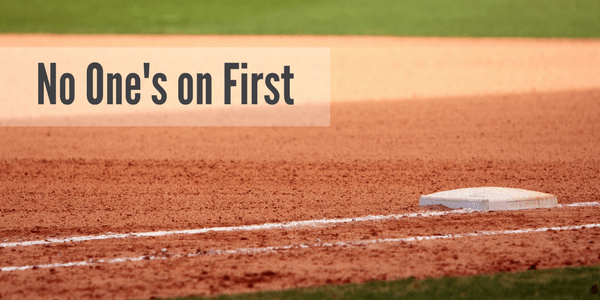
There’s quite a bit of press (including on this site) about filmmakers being sued for copyright infringement—and for good reason. It’s also important to protect yourself and your film from being copied: ensuring that your work is protected from unauthorized use with a copyright registration.
But what you may not know is this…
How and when you register your copyright can have a substantial impact on your ability to stop others from using your work and even how much you can seek in damages.
Two cases recently in the news highlight the need to get copyright registration for your film and to ensure that registration is as legally strong as it can be. Don’t make the mistakes from the two cases below.
Abbott and Costello, or Who’s Got Copyright?
The famous routine Who’s on First may be one of the most recognized bits in the history of comedy. If you think Bud Abbott’s lineup for the St. Louis Wolves is confusing, the arcane rules and processes for registering, assigning, and renewing copyright in a lawsuit over their routine will leave your head spinning.
It all started when the heirs of the duo sued the Broadway play Hand to God for using portions of Who’s on First, as reported by TechDirt back in 2015.
The initial court ruled that the Broadway play was invoking fair use in appropriating bits of the routine. However, on appeal, the Second Court of Appeals determined that the play was not covered by fair use—but the case was still dismissed because the Abbott and Costello heirs couldn’t show ownership of a valid copyright.
In simple terms, the heirs claimed that when Abbott and Costello performed the routine in the Universal Pictures movie Night in the Tropics, they had assigned copyright to the studio. As related by The Hollywood Reporter, the studio relinquished their claim to the routine in 1984, and so it reverted to the heirs.
The appellate court, however, said that the duo’s contract with Universal (for Night in the Tropics) was “an exclusive, limited-use license, not the assignment of copyright.”
Therefore, The Consumerist reports, it was up to the heirs to renew the copyright, which they did not do.
The takeaway for filmmakers is to not assume anything when it comes to your copyright. Protecting your creative work demands a legal review of the strength of your copyright registration.
Ask King James: Timing Is Everything
When LeBron James came alive in the final three games of the 2016 NBA Finals, it was the spark the Cleveland Cavalier’s needed to win the championship…a spark with near- perfect timing.
Solid Oak Sketches are the tattoo artists behind James’ distinctive tattoos (and those of many other NBA stars). Unfortunately for Solid Oak, their timing was less stellar in court.
In early 2016, Solid Oaks sued the makers of the video game NBA 2K for using realistic depictions of the tattoos. While the lawsuit can continue, a court has struck a major blow to Solid Oaks based on the date they submitted their copyright registration.
According to The Hollywood Reporter, the lawsuit claims the copyright infringement began in 2013. Solid Oaks didn’t register their copyright until 2015, however, which could end up costing them millions.
At issue here is how damages can be awarded. Copyrights don’t have to be registered to receive protection, but doing so allows the copyright holder to sue for statutory damages. With statutory damages, the plaintiff doesn’t have to prove how much money they lost due to the infringement. In the Solid Oaks case, the statutory damages could have hit anywhere from $1.2 million (as calculated by The Hollywood Reporter) to billions of dollars (according to Business Insider).
Instead, because they registered their copyright after the initial infringement, Solid Oaks is limited to suing for actual damages incurred. That’s a delay of game that could prove costly indeed.
Copyright Registration Is Legal Protection
While the law does allow for creators (including filmmakers) to protect their works without copyright registration, taking that step gives filmmakers important safeguards and remedies in situations where an infringement occurs. As listed on the U.S. Copyright Office website, these protections include…
- The right to sue for copyright infringement.
- The ability to seek statutory damages (and attorney’s fees) as compensation.
- The protection of prima facie (or factually sufficient) evidence in court.
The best way to protect your copyrighted work is to ensure your copyright claim is solid and secure. A Copyright Report from The Clearance Lab will provide the in-depth research and analysis you need to present a clear claim of copyright.
The Clearance Lab helps filmmakers protect themselves from many kinds of lawsuits. They can also help you protect your film from copyright infringement with a Copyright Report. Order yours today!

